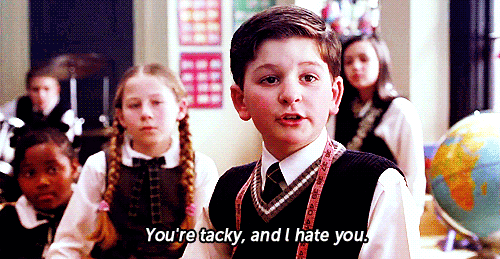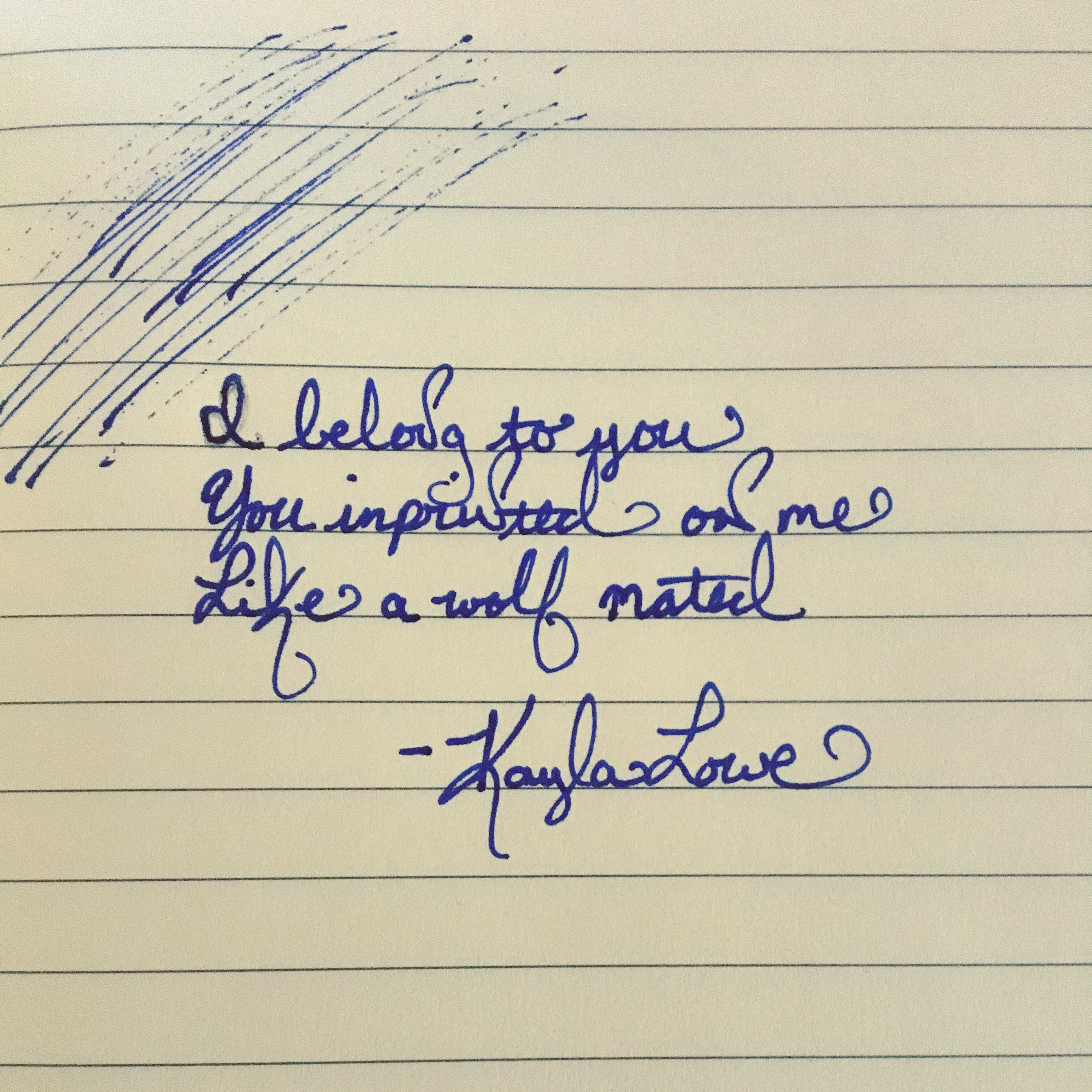Funny how illness works. You spend a week feeling off in some way – tired, foggy, achey – and figure it has to be something environmental. Not enough sleep, too much processed food, changes in weather, or even your room being too goddamn messy making it hard for you focus. Then next thing you know, you get sent home from work after only a half hour on a busy day because you’re struggling to lift a 20-pound toddler and end up laid up on the couch with a 100+ degree fever. Then the fever breaks, you wake up in the middle of the night drenched in sweat, and the next day you feel better than you have in ages.
Then you totally overdo it at karaoke that same day and set yourself way back again. Ah, well. Such is life. No getting around it.
This week:
Black Bird vol. 13
Boys Over Flowers vol. 11
Dawn of the Arcana vol. 8
The Demon Prince of Momochi House vol. 5
Dengeki Daisy vol. 4
A Devil and Her Love Song vol. 3
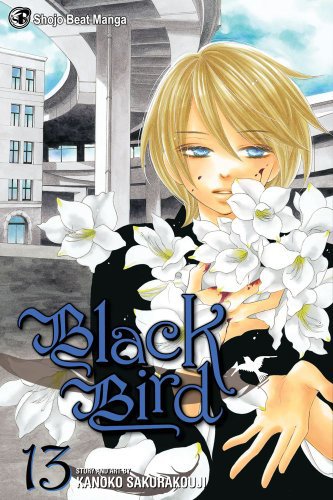
Black Bird vol. 13
Sho’s plans to plunge the world into chaos continue as he targets the Eight Daitengu, hoping to strip his brother Kyo of all his protectors. And now Sho has Hoki, whose secret past makes him easy prey.
Can Hoki stand up to Sho, or will his efforts to aid Kyo backfire? (summary by Viz)
1 point
Kyo and Misao spend very little time together in this volume. You can’t abuse your wife if you’re not around her, I guess!

Boys Over Flowers vol. 11
Tsukushi has just two weeks to prepare for the Teen of Japan contest! She can’t do it all on her own so Tsukasa’s sister, Tsubaki, offers her tutors in everything she’ll need to know to win. She must stay at the Domyoji mansion while she receives her lessons. Can Tsukushi stand the rigors of this training, and will anyone bolster her spirits? (summary by Viz)
5 points
Doumyouji actually spends most of this volume being kind and supportive to Tsukushi. He only chews her out when, in her frustration, she tries to quit training for the Teen of Japan contest, and that’s only to motivate her and renew her fighting spirit. So, what’s the big difference between this volume and all the previous ones?
Tsukushi is effectively under Domyoji’s control the whole time. She’s living in his house, learning from his tutors, trying to pay back money he loaned her. It shows exactly what he ultimately wants from her: a girl who, while she goes through the motions of putting up a fight, does what he wants and when. If Tsukushi actually defies him, he turns violent and abusive; if she shouts and fusses before ultimately giving in, he’s “admiring her spirit”. The lesson comes through loud and clear: be a “strong woman”, but only so far as it doesn’t get in the way of romance. I don’t want to totally discount Tsukushi’s strength – she’s incredibly self-reliant and stands up for herself in the face of adversity, plus she supports her family for the last two volumes – but ultimate goal of the series is for her to submit to Domyoji.

Dawn of the Arcana vol. 8
Princess Nakaba of Senan and Prince Caesar of Belquat only married each other for the sake of peace between their two warring countries, yet the two find themselves drawn to each other even as political forces threaten to tear their world apart. As Nakaba becomes embroiled in the chaos within the country of Lithuanel, Caesar prepares to return to Belquat to face the possibility of execution! Meanwhile, Nakaba’s Arcana of Time power reveals some disturbing details about her attendant Loki’s past… (summary by Viz)
3 points
Caesar decides to pull the classic romance move of trying to emotionally distance himself from his loved one in order to avoid hurting her as he heads back to Belquat. He doesn’t consult Nakaba about whether or not she actually wants to try to start a new life in Lithuanel, because these boys never do. This emotional withdrawal did garner the volume a point, although I wouldn’t call it abusive – more of an eye-rolly, unwelcome sort of self-indulgent “noble” sacrifice. Emotional withdrawal is one of the more ambiguous potential signs of abuse where context matters. It can be done as a choice, conscious or otherwise, in order to punish one’s partner, rather than a legitimate unhealthy reaction to environmental or internal factors. Withdrawing because your partner talked to someone you didn’t like? Potentially abusive. Withdrawing because of a mental illness flare-up? Unhealthy, but not abusive. Caesar isn’t doing it as a way to punish Nakaba, even if he is being presumptuous in not offering the choice whether or not to stand by him.
The more interesting part of the volume comes when Nakaba withdraws into her own past using the Arcana of Time. She chuckles at her own memory of Prince Adel taunting her and pulling her braid, reflecting on how it reminds her of Caesar when they first met. Handled properly, I would have expected this moment to trigger her, not cause her to giggle as if at a cute memory. She doesn’t want to say anything to Caesar, because it would upset him, but she can look back at it so fondly? Seeing a lifetime of severe emotional and physical abuse reflected in a partner shouldn’t be shrugged off so lightly. I’ve been giving Dawn of the Arcana a pass because Nakaba and Caesar’s relationship improved so dramatically, but bringing it back up reflects poorly on the whole series.
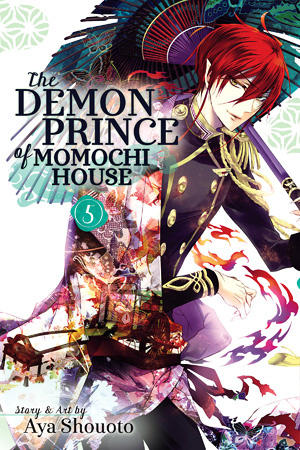
The Demon Prince of Momochi House vol. 5
Himari Momochi inherits Momochi House, an estate that exists on the barrier between the human and spiritual realms. The waters of the seven sacred falls have become polluted, and Himari, Aoi and the shikigami cross over to the spiritual realm to find the cause. But during an attempt to purify the waters, Himari is taken away by the dragon god! (summary by Viz)
3 points
I’ve really been enjoying Himari and Aoi’s slowly deepening relationship so far. They’ve slowly gotten more comfortable around each other, gradually ramping up their physical affection and emotional intimacy in a way that feels fairly natural. It’s rare for shoujo romance to find a comfortable middle ground between the “pure” series where it takes ten volumes for them to touch hands and the steamy ones where the boy immediately starts groping the girl, so the dynamic between the two has been welcome. It also brings up a major bump: Aoi becomes jealous of Himari spending time with Hayato. The series handles it in a way that doesn’t come across entirely badly. Aoi lacks a framework for understanding his own emotions and reactions, so his dislike of the two spending time together is an instinctive reaction he can’t define. How the situation develops will be make or break.
Oh, and he punishes by tying her up with fluffy fox yokai, while she squirms and complains that she’s ticklish. Um, okay?

Dengeki Daisy vol. 4
Discovering DAISY’s true identity not only shocks Teru but makes things more confusing for her as well. Meanwhile, someone pretending to be DAISY threatens to spread a computer virus at school! But who’s the true target of this attack? (summary by Viz)
7 points
The main thrust of this volume is Teru processing that Kurosaki is Daisy and how that affects her relationship with him, and Kurosaki continues wrestle with his ethically gray past. At first, Teru has trouble talking to “Daisy” the same way she used to, but soon settles back into the same dynamic. She manages to maintain the status quo with both sides of the relationship, but now she only smiles at Kurosaki’s barrage of verbal abuse and blackmail because she knows that what he says as Daisy is how he really feels. Because bullying is okay if the bully really likes you! I’m so tired of when a boy teases a girl – or, in this case, a man teases a girl – it means he likes her, and that makes it okay.
Naturally, Teru turns to her friends to talk about the sudden revelation about Daisy’s identity and to help her process her feelings. Not a single one seems concerned that he’s an adult, that he’s a staff member at her school, that he teases her mercilessly. They only offer advice on what she can do to advance her relationship with him and emotionally support him, even when he rips a necklace off of her because she was going to wear it to a group date.
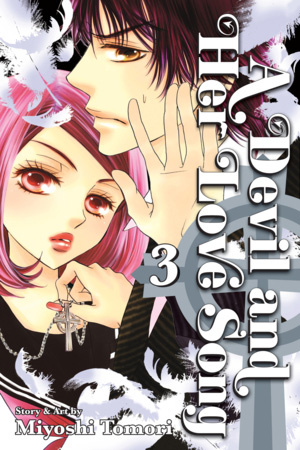
A Devil and Her Love Song vol. 3
Hana Ibuki, a cheerful soul, waltzes into Maria’s life and befriends her right away. She even convinces wary classmates to join Maria’s choral group. There’s something suspicious about Hana’s help, however, especially since misconceptions about Maria occur every time Hana is involved. Is Hana really a friend or actually a foe? (summary by Viz)
2 points
Maria and Yusuke’s relationship has smoothed back out, and he’s back to being Maria’s close ally along with Shin and Tomoyo. This week, the antagonist is newcomer Hana, a dangerously manipulative girl who gets away with it by being tiny, adorable, and charming. To be honest, she’s a pretty standard shoujo manga “frenemy” figure cut from the same cloth as Kimi ni Todoke’s Kurumi, Boys Over Flowers’ Sakurako, and a number of others: she harbors a long-time crush on the male love interest, performs femininity better than the awkward main character, and uses these things to control the rest of the class. By the end of the volume, the heroine sees through her bullshit and warmly declares her a rival.
What I’m trying to say is, this installment of A Devil and Her Love Song is pretty rote shoujo fare, with Maria as its saving grace, no pun intended. She’s not so perceptive as to be omniscient, but her blunt way of speaking and uncanny ability to read people make her a fun character. That nature also makes Shin, who is often outright rude, more palatable than he probably would be with a more mild-mannered heroine. He crosses the line sometimes, but the two generally have a fun back-and-forth. The story’s focus more on bullying for now, but once it crosses into romance? He’s my pick.
Next Week
Black Bird vol. 14
Boys Over Flowers vol. 12
Dawn of the Arcana vol. 9
The Demon Prince of Momochi House vol. 6
Dengeki Daisy vol. 5
A Devil and Her Love Song vol. 4
